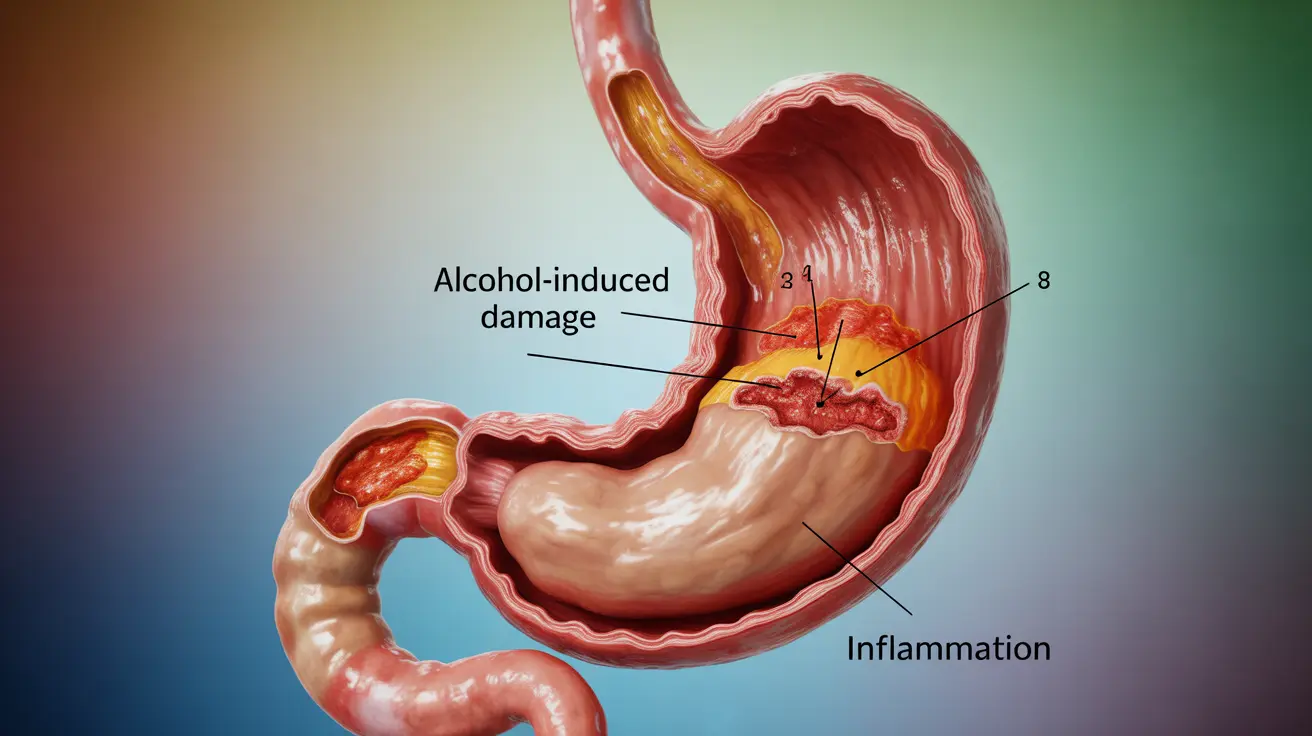The relationship between alcohol consumption and stomach cancer has become an increasingly important area of medical research. As studies continue to reveal connections between drinking habits and various types of cancer, understanding how alcohol specifically affects stomach cancer risk is crucial for public health awareness and prevention strategies.
This comprehensive guide explores the complex relationship between alcohol consumption and stomach cancer, including risk factors, warning signs, and steps you can take to protect your health.
The Link Between Alcohol and Stomach Cancer
Research has shown that regular alcohol consumption can significantly impact your risk of developing stomach cancer. Alcohol can damage the stomach lining and interfere with normal cellular processes, potentially leading to cancerous changes over time.
The risk appears to be dose-dependent, meaning higher levels of alcohol consumption generally correlate with increased cancer risk. Multiple mechanisms contribute to this relationship, including direct tissue damage and alterations in how the body processes nutrients.
How Alcohol Damages the Stomach
Direct Tissue Injury
Alcohol can directly irritate and damage the stomach's protective lining, leading to inflammation and cellular changes. This repeated injury can make cells more susceptible to becoming cancerous over time.
Disruption of Normal Cell Function
Regular alcohol consumption can interfere with how cells repair and reproduce, potentially leading to DNA damage and abnormal cell growth—key factors in cancer development.
Warning Signs and Symptoms
For those who drink regularly, being aware of potential stomach cancer symptoms is crucial. Key warning signs include:
- Persistent upper abdominal pain
- Unexplained weight loss
- Early satiety (feeling full after eating small amounts)
- Persistent nausea or vomiting
- Dark or bloody stools
- Difficulty swallowing
Prevention and Risk Reduction
Modifying Alcohol Consumption
Taking steps to reduce alcohol intake can significantly impact your stomach cancer risk. Consider these strategies:
- Setting specific limits on weekly alcohol consumption
- Having alcohol-free days each week
- Choosing lower-alcohol alternatives
- Tracking your drinking habits to maintain awareness
Additional Protective Measures
Beyond managing alcohol intake, other preventive steps include:
- Maintaining a healthy diet rich in fruits and vegetables
- Regular exercise
- Regular medical check-ups
- Avoiding tobacco use
Frequently Asked Questions
Can drinking alcohol increase my risk of developing stomach cancer?
Yes, regular alcohol consumption can increase your risk of developing stomach cancer. The risk appears to be directly related to the amount of alcohol consumed over time, with heavy drinkers facing the highest risk.
How many alcoholic drinks per day raise the risk of stomach cancer?
Research suggests that consuming more than two drinks per day for men or more than one drink per day for women can significantly increase stomach cancer risk. The risk increases substantially with heavy drinking patterns.
What symptoms of stomach cancer should heavy drinkers watch for?
Heavy drinkers should be particularly vigilant about symptoms such as persistent abdominal pain, unexplained weight loss, early satiety, difficulty swallowing, and any unusual changes in digestion or bowel habits.
Can reducing or quitting alcohol lower the chance of getting stomach cancer?
Yes, reducing or eliminating alcohol consumption can help lower your risk of developing stomach cancer. The sooner you make these changes, the more significant the potential benefit to your health.
Why does alcohol cause inflammation that may lead to stomach cancer?
Alcohol causes inflammation through multiple mechanisms, including direct irritation of the stomach lining, disruption of the gut barrier function, and alteration of the body's inflammatory response. This chronic inflammation can create conditions that promote cancer development.
Taking control of your alcohol consumption and maintaining awareness of potential warning signs are crucial steps in protecting your stomach health. If you have concerns about your drinking habits or notice unusual symptoms, consult with a healthcare provider for proper evaluation and guidance.




